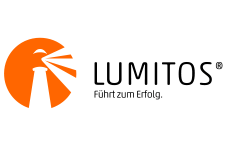Um alle Funktionen dieser Seite zu nutzen, aktivieren Sie bitte die Cookies in Ihrem Browser.
my.chemie.de
Mit einem my.chemie.de-Account haben Sie immer alles im Überblick - und können sich Ihre eigene Website und Ihren individuellen Newsletter konfigurieren.
- Meine Merkliste
- Meine gespeicherte Suche
- Meine gespeicherten Themen
- Meine Newsletter
19 Infografiken zum Thema Metalle
rss| Sie können Ihre Recherche weiter verfeinern. Wählen Sie aus dem linken Bereich passende Suchfilter aus, um Ihre Ergebnisse gezielt einzugrenzen. |
In dieser Infografik wollte ich hervorheben, welche Elemente in Ihrem Smartphone am Ende seiner Lebensdauer tatsächlich recycelt werden - und bei welchen wir bei die Wiederverwendung besser machen könnten!
Ein Jahresrückblick
Auf dem Weg ins Jahr 2018 ist es an der Zeit, einen Blick zurück auf einige der größten Wissenschaftsnachrichten des vergangenen Jahres zu werfen. Die diesjährigen Nachrichten enthielten giftige Frösche, Batteriebrände, Elementbildung und vieles mehr!
Here’s the start of a new series of collaborations withMEL Science, looking at a number of fun chemistry experiments and the explanations behind them. Today’s initial offering looks at how zinc pellets can be transformed into tin hedgehogs with some simple chemistry.
Back in school, you’ll have learned that the air in our atmosphere is composed primarily of nitrogen, at 78%, and oxygen, at 21%, with a number of other trace gases. It’s to these trace gases we’re looking today – more specifically, at how human activity can result in the release of air pollution ...
The Compounds in Red Lipstick
Lipstick is one of the most commonly used cosmetic products – and arange of chemicals are required for its production. The choice of these ingredients is carefully considered to provide the desired colour, glossiness, and indelibility. A single stick of lipstick will contain several hundred ...
The Chemistry of their Environmental Effects
Many of us enjoyed watching spectacular fireworks displays to usher in the new year. However, the vibrant colours of fireworks belie the effects that they can have on the environment. With this graphic, we take a look at some of the issues that they can cause.
Thallium, ‘The Poisoner’s Poison’
Having already looked at arsenic and cyanide in the previous instalments in this series, our attention turns to thallium, another famed poison. Thallium perhaps doesn’t share quite the same profile as arsenic and cyanide, but despite this it’s perhaps an even more effective compound in ...
It’s Fireworks Night here in the UK tomorrow, which means fireworks (obviously), bonfires and sparklers. We’ve looked at fireworks in a previous post,so this time around it’s time to take a look at the chemicals that go into producing sparklers, and their various roles. In sparklers, there are ...
There are an isolated few graphics online that look at elements involved in the manufacture of a smartphone – for example, this ‘Periodic Table of iPhones’ – but there’s actually remarkably little easily accessible information out there that details the specific compounds used for specific ...
In the wake of the recent announcement of a new £1 coin to be introduced in 2017, today’s post looks at some of the metals present in the coins of the United Kingdom. All of these coins are produced using alloys, or mixtures of metals; the main metals used include copper, nickel, zinc and iron. ...
Sie erhalten passend zu Ihrer Suche die neusten Suchergebnisse per E-Mail. Dieser Service ist für Sie kostenlos und kann jederzeit abbestellt werden.













